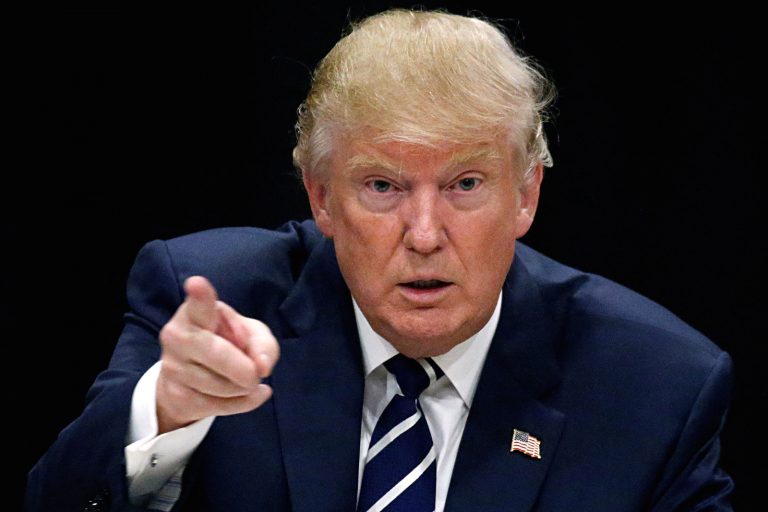
With President-elect Donald Trump set to take office on January 20 next year, will international student flows to the U.S. take a hit, as many in the higher education sector have feared?
Universities have expressed concerns that steady growth in foreign student enrollments, which saw the number of international students at U.S. colleges and universities surpassing one million for the first time during the 2015-16 academic year, will see a dip as a result of Trump’s victory.
Surveys conducted prior to the 2016 presidential election have indicated that around 60 percent of prospective international students to the U.S. claimed they were less likely to enroll at an American institution if Trump became president.
In contrast, only four percent had the same view if Trump’s opponent, Hillary Clinton, won.
Donald Trump and International Student Mobility: What Next? https://t.co/qcfxYHIgJ9 via @student
— Theresa Harrington (@TunedToTheresa) November 22, 2016
Now that Trump is incumbent President Barack Obama’s successor, have some overseas students changed their mind about coming to the U.S. for their studies?
According to Student.com, an online accommodation marketplace for international students, in the week following the election, there was a significant dip in Chinese students booking accommodations to the U.S. through the website.
Based on current trends at the most popular study destinations, China is the largest source country of international students around the world.
Student.com CEO Luke Nolan said in a blog post that the decrease was notable, as bookings for other countries were increasing.
However, he added: “It’s too early to tell whether this dip will be temporary or whether Chinese students are reconsidering their place at universities across the U.S.”
Clinton ‘wins’ US election among most Asians – but support for Trump stronger in China: survey https://t.co/ef2gDXA1Hd pic.twitter.com/eYadDM2G0H
— SCMP News (@SCMP_News) November 5, 2016
In fact, Nolan said that Chinese students don’t appear to be overly concerned about a Trump presidency.
A survey commissioned by the Sunday Morning Post before the election reflects that – it found that 39 percent of Chinese respondents supported Trump, which was much higher than the support rate of its neighboring countries.
Students from the Middle East are more likely to be worried about their prospects, as Trump has proposed banning Muslims and those from countries “compromised” by terrorism from entering the country, as well as setting up a Muslim registry.
Should students from the region decide to pursue their studies elsewhere, U.S. institutions will lose out, as the Middle East sends over 100,000 students to the U.S. every year.
According to the Open Doors 2016 report, Saudi Arabia is the third most popular source country, sending over 61,000 students to the U.S. last year and ranking only behind China and India.
60,000+ international students in #US are from #Saudi Arabia, third-most after China & India. #IEW2016 #OpenDoorsReport @IIEglobal pic.twitter.com/A6Xr1XtNxZ
— AMIDEAST (@AMIDEASThq) November 16, 2016
Students are also concerned about possible changes to the H-1B visa scheme, which allows U.S. employers to take on foreign workers in speciality occupations.
The visa scheme has secured jobs for 65,000 workers and another 20,000 graduate student workers in the U.S. every year, and has especially been vital in providing the manpower needed for the tech industry, reported The Guardian.
While Trump has flip-flopped on the issue, his advisors, such as his candidate for Attorney General Senator Jeff Sessions, and his Chief White House strategist Stephen Bannon, are against utilizing foreign talent, preferring the jobs to go to U.S. citizens. This could mean that the scheme may have new restrictions imposed to limit the employment of foreign workers.
Visas for tech workers could be limited under Trump administration https://t.co/ZTLL08Dvkt
— Guardian news (@guardiannews) November 21, 2016
Nolan said such concerns may have international students turning to other countries with better graduate employment opportunities, such as Australia or Canada.
“Australia is already seeing record numbers of international students and continues to grow.
“Last season, our bookings to the country doubled and we saw both Melbourne and Sydney enter our Top 3 most searched cities in the world,” he wrote.
Nolan also urged students to see the silver lining: “Even a slightly lower exchange rate in the future could increase the country’s competitiveness as a destination, making the U.S. more affordable for students hoping to study in one of its revered institutions”.
Image via Reuters
Liked this? Then you’ll love these…
Where does Trump stand on higher education issues?
Trump victory could reverse U.S. gains in international student recruitment, survey finds







